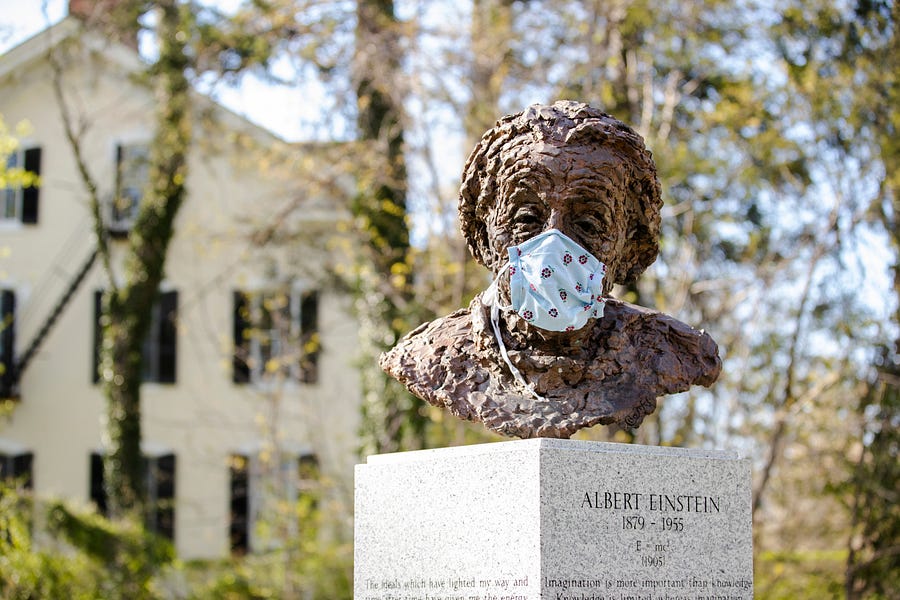Here’s a thought experiment for you. Would you rather have a Princeton education, or do without the education but get the Princeton diploma?
Economist Bryan Caplan posed this question a couple of years ago in his provocative book, The Case Against Education. It’s a tougher question to answer than you might think. As Caplan put it, if you’re stranded on a deserted island, a diploma from a survival training course isn’t as valuable as the actual survival training. But in the labor market you wouldn’t see it the same way.
For job seekers, the diploma is probably more valuable than the education. Economists call this the “sheepskin effect.” (Traditionally, diplomas were printed on sheepskin.) To get hired by a big company, you need to get into the pipeline of people getting an interview, and it’s difficult to even get an interview if you don’t have a diploma from the right school.
Screening the applicant pool to find graduates from the best schools doesn’t guarantee you’ll get the best workers, but it’s a useful shortcut for employers. It saves time and minimizes the chances you’ll get truly unqualified applicants. And, not to be discounted, it gives the HR people an excuse if a hire doesn’t work out. “Hey, he came from MIT. I assumed he could do the work!”
The sheepskin effect is not an iron law of economics. It’s just one trend or variable in a broader equation. Plenty of successful people have dropped out or skipped college entirely. But one thing an elite diploma telegraphs to potential employers is that you’re good at doing the things that get you into an elite school.
The sheepskin effect can be difficult to isolate precisely because there are so many other variables at play. Among the most important reasons to send your kid to the best college possible are the social benefits one gets from going to an elite school. The friendships and access to various social networks students get from going to Princeton might be as valuable as the education or the sheepskin. Who you know can be more valuable than what you know.
Everyone familiar with the process of going to college understands at some visceral level that a big chunk of what you’re paying an obscene amount of money for isn’t the formal education, but the intangible social benefits and the power of the credential itself.
For years, critics of higher education have predicted that the pattern of ever-rising tuitions for a product that hasn’t really improved in innate value is unsustainable. And yet, nothing changed.
That may be coming to an end. COVID-19 has fundamentally changed the equation. In an interview with New York magazine, Scott Galloway, a Silicon Valley veteran turned professor at New York University’s Stern Business School, argues that, thanks to the pandemic, “There’s a recognition that education—the value, the price, the product—has fundamentally shifted. The value of education has been substantially degraded.”
Universities now contend that the price of the sheepskin shouldn’t change even if kids can’t go to campus. Every school is saying, “This is unprecedented, and we’re in this together.” Galloway jokes that this is Latin for: “We’re not lowering our prices, b**ches.”
Universities, Galloway says, are living in a kind of fantasy world, “with each saying, ‘We’re going to maintain these prices for what has become, overnight, a dramatically less compelling product offering.’”
Paying more than $50,000 to have your kid take classes from home via Zoom or Google Hangouts seems like a pretty bad deal—and that’s if you can afford it, which is more unlikely for many people given the economic downturn. That means a lot of college-bound kids are going to postpone going for a year—probably a good thing.
But the huge drop-off in applicants means a huge drop-off in revenue. The top-tier schools will be OK, and they’ll probably fill out their rosters with kids who couldn’t have gotten accepted in a normal year. But the overall shortfall in applicants will eventually hit some schools hard.
Galloway believes that when all of this is over, many colleges will be dead or dying. What comes out the other side will look very different than the system we’ve known. He sees new partnerships between big corporations and elite universities becoming one feature of the new normal. Another: the normalization of distance learning.
I’m not sure that will be a positive change, but I’m more certain the system that needed a pandemic to change its ways will have no one to blame but itself.
Photograph of a bust of Albert Einstein on the Princeton University campus by Ira L. Black/Corbis via Getty Images.









Please note that we at The Dispatch hold ourselves, our work, and our commenters to a higher standard than other places on the internet. We welcome comments that foster genuine debate or discussion—including comments critical of us or our work—but responses that include ad hominem attacks on fellow Dispatch members or are intended to stoke fear and anger may be moderated.
You are currently using a limited time guest pass and do not have access to commenting. Consider subscribing to join the conversation.
With your membership, you only have the ability to comment on The Morning Dispatch articles. Consider upgrading to join the conversation everywhere.